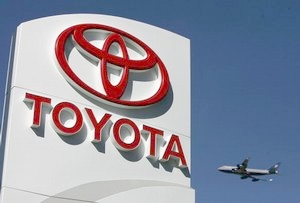When Poland and six other former communist countries entered the EU last year, many feared they would lose their most talented and skilled denizens to Britain, Ireland and Sweden
Published:
11 March 2005 y., Friday
When Poland and six other former communist countries entered the EU last year, many feared they would lose their most talented and skilled denizens to Britain, Ireland and Sweden - richer EU countries that have opened their labor markets to new EU members.
At the same time, British tabloids warned of the impending onslaught of Slovak and Hungarian Gypsies willing to work for low wages.
And France and Germany, along with most of the old EU members, imposed a seven-year waiting period on opening up their labor markets, fearing a mass migration of workers from the East would threaten jobs and bring down wages at home.
Ten months after the EU's historic expansion, very few of the fears have materialized.
Those most intent on working abroad long ago found ways to do so, while for groups such as the impoverished Gypsies, or Roma, finding jobs abroad is still too expensive and complicated.
In Poland, the feared brain drain hasn't occurred despite a jobless rate that hovers near 20 percent - the highest among the ex-communist countries that joined the EU last year.
Šaltinis:
thestaronline.com
Copying, publishing, announcing any information from the News.lt portal without written permission of News.lt editorial office is prohibited.
The most popular articles
 The European Institute for Gender Equality (EIGE) will, for the first time, open its doors in Vilnius on 16 December 2009.
more »
The European Institute for Gender Equality (EIGE) will, for the first time, open its doors in Vilnius on 16 December 2009.
more »
 The European Commission has today launched a public consultation on the future of air passenger Rights and released a top 12 list of recommendations to guarantee travellers a safe and problem-free journey this Christmas.
more »
The European Commission has today launched a public consultation on the future of air passenger Rights and released a top 12 list of recommendations to guarantee travellers a safe and problem-free journey this Christmas.
more »
 Japan's Toyota Motor announced that it will begin selling "plug-in" hybrid cars in mass volumes in two years' time.
more »
Japan's Toyota Motor announced that it will begin selling "plug-in" hybrid cars in mass volumes in two years' time.
more »
 The first results of the latest Eurobarometer survey reveal that for Europeans unemployment is the most important issue facing their own country, while concerns about the economic situation have lessened slightly.
more »
The first results of the latest Eurobarometer survey reveal that for Europeans unemployment is the most important issue facing their own country, while concerns about the economic situation have lessened slightly.
more »
 The Human Rights Day focuses on non-discrimination with the motto “Embrace diversity, end discrimination”.
more »
The Human Rights Day focuses on non-discrimination with the motto “Embrace diversity, end discrimination”.
more »
 With the season‘s holidays approaching DnB NORD Bankas issued the first gift card in Lithuania that allows the card holder to pay for the presents they enjoy in any shopping, entertainment or catering place where Maestro payment cards are accepted.
more »
With the season‘s holidays approaching DnB NORD Bankas issued the first gift card in Lithuania that allows the card holder to pay for the presents they enjoy in any shopping, entertainment or catering place where Maestro payment cards are accepted.
more »
 Australian journalist Nigel Brennan was on his way to a camp in Somalia in August last year, to highlight the plight of the country's refugees, when he and his colleague, Amanda Lindhout were kidnapped by gunmen.
more »
Australian journalist Nigel Brennan was on his way to a camp in Somalia in August last year, to highlight the plight of the country's refugees, when he and his colleague, Amanda Lindhout were kidnapped by gunmen.
more »
 Corruption remains an obstacle to development and threatens economic recovery. No country in the world is immune to corruption and that also applies to each of the 27 EU Member States.
more »
Corruption remains an obstacle to development and threatens economic recovery. No country in the world is immune to corruption and that also applies to each of the 27 EU Member States.
more »
 People across Europe should be encouraged to volunteer more to help themselves and the wider community, MEPs said in a resolution on 26 November.
more »
People across Europe should be encouraged to volunteer more to help themselves and the wider community, MEPs said in a resolution on 26 November.
more »
 he heat is on for the UN's most senior climate official. Yvo de Boer , executive secretary of the United Nations Framework Convention on Climate Change, is optimistic the climate summit will produce a signed and seal deal.
more »
he heat is on for the UN's most senior climate official. Yvo de Boer , executive secretary of the United Nations Framework Convention on Climate Change, is optimistic the climate summit will produce a signed and seal deal.
more »